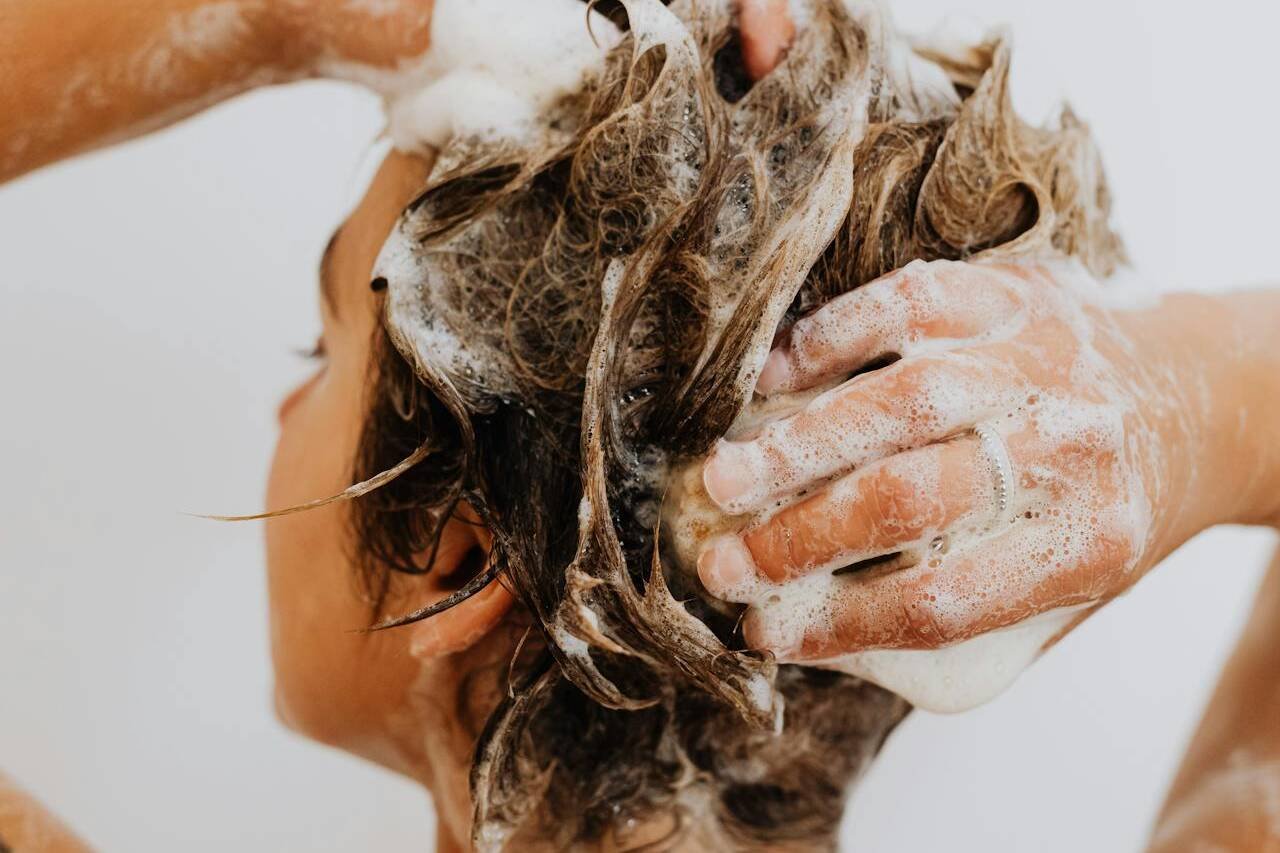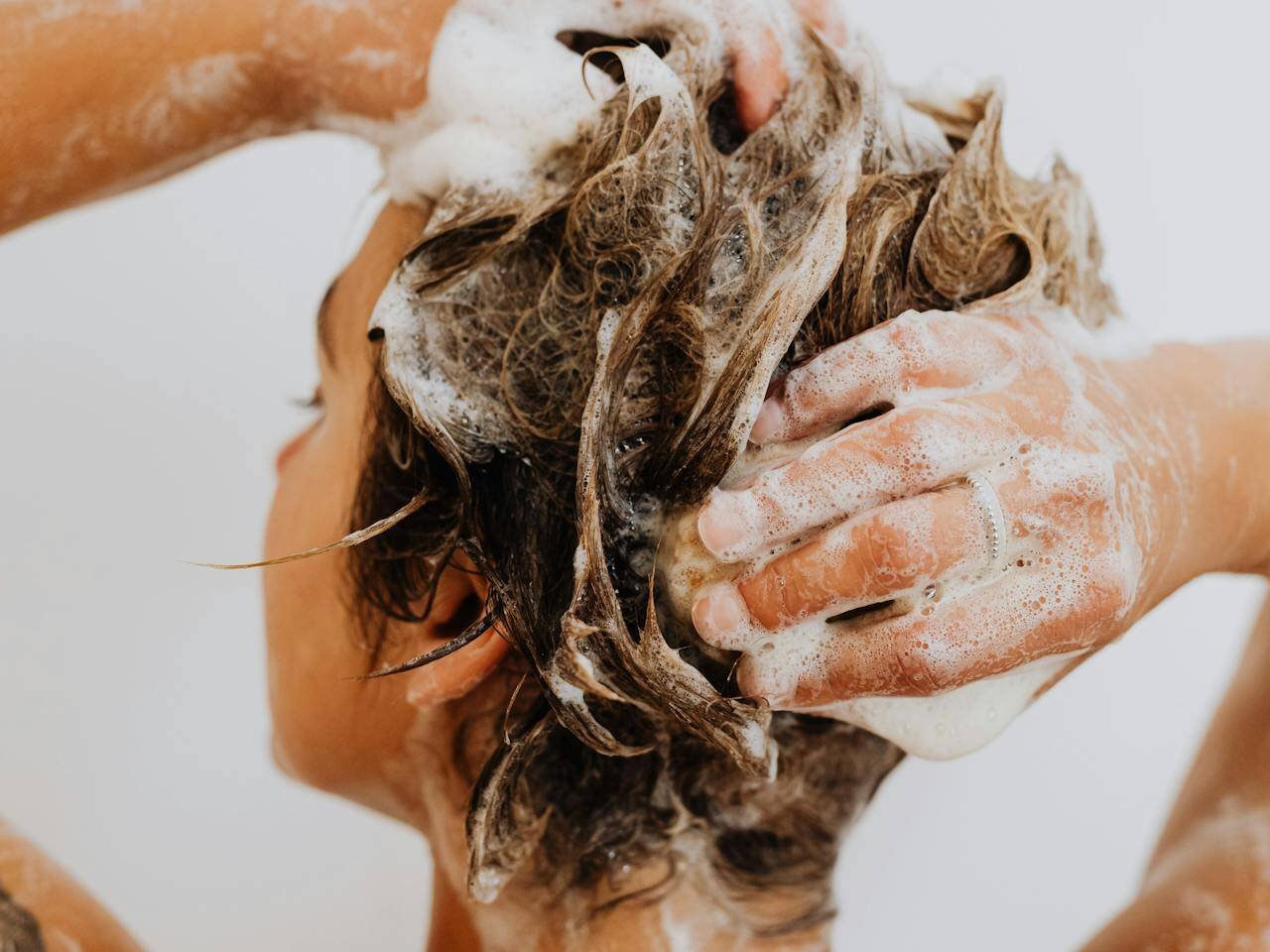Scalp sensitivity isn’t just about having delicate skin. From a trichological perspective, it’s a legitimate condition that can significantly impact your daily comfort, hair care routine, and even hair growth. Research suggests that up to 60% of people experience some form of scalp sensitivity, yet many dismiss their symptoms as normal or temporary discomfort.
As hair and scalp specialists understand, the health of your scalp directly affects the health of your hair. Understanding the warning signs of a sensitive scalp is the first step toward finding relief and maintaining optimal hair and scalp health. Let’s explore the key indicators that your scalp needs special attention and gentler care.
Understanding Scalp Sensitivity: A Trichological Perspective
From a trichological standpoint, your scalp is the foundation of healthy hair growth. It contains thousands of nerve endings, making it one of the most sensitive areas of your body. When these nerve endings become irritated or inflamed, they can trigger uncomfortable sensations and disrupt the optimal environment needed for healthy hair follicles.
Trichologists recognize that scalp sensitivity often develops gradually, which is why many people don’t realize they have it until symptoms become more pronounced. Unlike temporary irritation from a specific product, sensitive scalp represents an ongoing disruption to the scalp’s ecosystem that requires consistent, scientifically-informed care.
7 Warning Signs of a Sensitive Scalp
1. Persistent Itching That Doesn’t Go Away
What it feels like: A constant urge to scratch your scalp, even when your hair appears clean and healthy. The itching may worsen at night or during stressful periods.
Why it happens: From a trichological perspective, sensitive scalps have compromised barrier function, making them more reactive to environmental factors, products, and even natural sebum production. This disruption triggers inflammatory responses that can affect both scalp comfort and hair follicle health.
Red flag: If you find yourself scratching unconsciously throughout the day or waking up with scratched areas on your scalp, this indicates sensitivity rather than occasional irritation.
2. Burning or Stinging Sensations During Hair Washing
What it feels like: A sharp, burning sensation when water touches your scalp or when applying shampoo. Some describe it as feeling like tiny needles or a chemical burn.
Why it happens: Trichologists understand that sensitive scalps have increased nerve sensitivity and compromised protective barriers. The scalp’s acid mantle—crucial for maintaining healthy hair follicles—becomes disrupted, making even gentle products trigger pain receptors.
Red flag: If you experience burning sensations with multiple different products or even with plain water, your scalp is likely hypersensitive and needs specialized care.
3. Visible Redness and Inflammation
What it looks like: Pink or red patches on your scalp, particularly around the hairline, crown, or areas where you part your hair. The redness may appear immediately after washing or develop gradually.
Why it happens: Trichological science shows that inflammation disrupts the scalp’s microenvironment, affecting both comfort and the hair growth cycle. Sensitive scalps tend to overreact to stimuli that wouldn’t affect a healthy scalp ecosystem, potentially impacting hair follicle function.
Red flag: Redness that persists for more than a few hours after washing or appears without obvious cause suggests ongoing scalp sensitivity.
4. Unusual Flaking or Scaling
What it looks like: White or yellowish flakes that differ from typical dandruff. These flakes may be smaller, more numerous, or appear in patterns across your scalp rather than just at the hairline.
Why it happens: Trichologically, sensitive scalps often have disrupted cell turnover and compromised barrier function, causing skin cells to shed irregularly. This differs from seborrheic dermatitis (dandruff), which involves fungal activity and requires different treatment approaches.
Red flag: If anti-dandruff shampoos make your flaking worse or if flakes appear alongside other sensitivity symptoms, you’re likely dealing with scalp sensitivity rather than dandruff.
5. Tenderness to Touch
What it feels like: Your scalp feels sore or tender when touched, brushed, or styled. Even gentle pressure from pillows or hair accessories may cause discomfort.
Why it happens: From a trichological standpoint, inflamed nerve endings in sensitive scalps become hyperresponsive to pressure and touch. This tenderness often indicates that the scalp’s protective barrier has been compromised, potentially affecting the hair follicle environment.
Red flag: If your scalp feels tender without any obvious injury or if the tenderness is widespread rather than localized, this suggests sensitivity.
6. Reactions to Hair Products You’ve Used Before
What it looks like: Sudden reactions to products that previously caused no problems. This might include shampoos, conditioners, styling products, or even hair tools.
Why it happens: Trichological research shows that scalp sensitivity can develop over time due to repeated exposure to irritants, hormonal fluctuations, stress, or environmental factors. The scalp’s tolerance threshold decreases as its barrier function becomes compromised, affecting both comfort and hair health.
Red flag: If you’re experiencing reactions to familiar products or find yourself having to avoid more and more hair care items, your scalp has likely become sensitized.
7. Tightness and Dryness
What it feels like: Your scalp feels tight, dry, or “pulled” even after washing. You might feel like your scalp needs moisturizing, similar to how dry facial skin feels.
Why it happens: Trichologists recognize that sensitive scalps often have impaired lipid barrier function, leading to increased transepidermal water loss and compromised scalp health. This creates a cycle where dryness increases sensitivity, which further compromises the moisture barrier and can negatively impact hair follicle health.
Red flag: If your scalp feels tight shortly after washing or if you notice increased hair static and flyaways, your scalp’s moisture barrier may be compromised.
The Sensitive Scalp Self-Assessment
Ask yourself these questions to evaluate your scalp’s sensitivity level:
Daily Comfort:
- Do you think about your scalp discomfort during the day?
- Do you avoid touching or styling your hair due to scalp sensitivity?
- Do you postpone hair washing because of anticipated discomfort?
Product Reactions:
- Have you had to stop using products that previously worked well?
- Do you experience immediate reactions when trying new hair care products?
- Do you find yourself reading ingredient labels more carefully than before?
Physical Symptoms:
- Do you experience two or more of the warning signs listed above?
- Have your symptoms been present for more than a few weeks?
- Do your symptoms affect your daily activities or sleep?
If you answered yes to several of these questions, you likely have a sensitive scalp that would benefit from specialized care.
When to Consult a Trichologist or Dermatologist
While many cases of scalp sensitivity can be managed with gentle care and appropriate products, certain symptoms warrant professional attention. Trichologists specialize in hair and scalp health and can provide targeted treatments, while dermatologists address underlying skin conditions.
Seek immediate medical care if you experience:
- Sudden, severe scalp pain or burning
- Open sores, blisters, or bleeding
- Hair loss in patches
- Signs of infection (pus, fever, swollen lymph nodes)
- Symptoms that worsen despite gentle care
Schedule a trichology consultation if:
- Your symptoms persist for more than 6 weeks
- You’re experiencing changes in hair growth or texture
- Gentle, scalp-appropriate products don’t provide relief
- Your scalp sensitivity is affecting your hair’s appearance or growth
- You want a comprehensive scalp analysis and personalized care plan
See a dermatologist if:
- You suspect an underlying condition like psoriasis, eczema, or seborrheic dermatitis
- You have signs of infection or severe inflammation
- Your symptoms are accompanied by significant hair loss
Creating Your Trichologically-Informed Care Foundation
Once you’ve identified that you have a sensitive scalp, the key is transitioning to a scientifically-informed, gentle approach. This means choosing products specifically formulated for sensitive scalps based on trichological principles, like Calm Effect Sensitive Shampoo, which is designed to cleanse while maintaining your scalp’s optimal pH and protective barrier function.
Essential trichological principles for sensitive scalp care:
Maintain scalp pH balance by choosing products with a pH between 4.5-5.5, which supports the scalp’s natural acid mantle and optimal hair follicle environment.
Support barrier function through ingredients that strengthen the lipid barrier and reduce transepidermal water loss.
Simplify your routine by using fewer products with carefully selected, scalp-compatible ingredients. Complex formulations can overwhelm compromised scalp barriers.
Choose fragrance-free options whenever possible, as fragrances are common sensitizers that can trigger reactions even in small amounts.
Test new products carefully by applying a small amount to a patch of scalp and waiting 24-48 hours before full use.
Optimize washing frequency based on your scalp’s sebum production and sensitivity level. Trichologists often recommend finding the balance between maintaining scalp hygiene and avoiding over-cleansing that can disrupt the scalp ecosystem.
The Path Forward
Recognizing that you have a sensitive scalp is actually empowering. It means you can stop wondering why your scalp feels uncomfortable and start taking targeted action to improve your comfort and scalp health.
Remember that scalp sensitivity is manageable with the right trichological approach. Many people successfully control their symptoms and enjoy comfortable, healthy scalps by making scientifically-informed changes to their hair care routines.
Your scalp is the foundation of healthy hair growth and deserves specialized attention. By paying attention to these warning signs and responding with trichologically-sound care, you can transform your daily hair care routine from a source of discomfort into a nurturing treatment that supports both scalp health and optimal hair growth.
The journey to scalp comfort begins with recognition. Now that you know what to look for, you’re equipped to make the changes that will help your scalp feel its best.
Frequently Asked Questions
Q: Can scalp sensitivity develop suddenly? A: Yes, scalp sensitivity can develop at any age due to hormonal changes, stress, new medications, environmental factors, or cumulative exposure to irritants.
Q: Is scalp sensitivity the same as having allergies? A: Not necessarily. While allergic reactions can cause scalp sensitivity, many people have sensitive scalps without specific allergies. Sensitivity often involves increased reactivity to normal stimuli.
Q: Can I use regular shampoo if I have a sensitive scalp? A: Regular shampoos often contain sulfates and other ingredients that can be too harsh for sensitive scalps. Gentle, sulfate-free formulations designed for sensitive scalps are typically better choices.
Q: Will my scalp sensitivity go away on its own? A: While some temporary sensitivity may resolve, chronic scalp sensitivity usually requires ongoing gentle care and appropriate product choices to maintain comfort.
Q: Can stress really affect my scalp sensitivity? A: Absolutely. Stress can increase inflammation throughout the body, including the scalp, and can make existing sensitivity worse. Managing stress often helps improve scalp comfort.
Related Articles
June 29, 2025
The Complete Guide to Post-Workout Hair Washing
Why Most People Are Washing Their Hair Wrong? You've invested time in…
May 17, 2025
Why Your Water Quality Might Be Sabotaging Your Hair Shine (And What to Do About It)
Is your shower secretly stealing your hair's shine? The water flowing through…
May 17, 2025
The Glass Hair Diet: 15 Foods That Boost Hair Shine from Within
Want hair so shiny it reflects light like glass? The secret might be on your…



